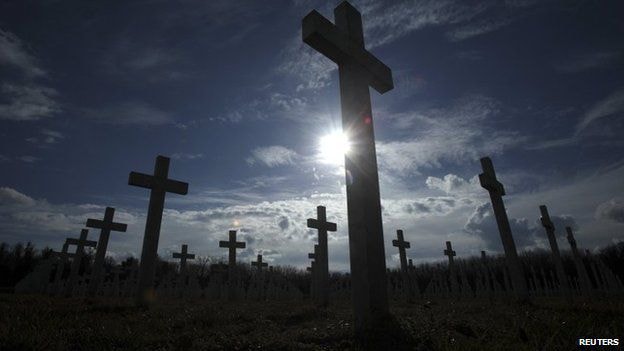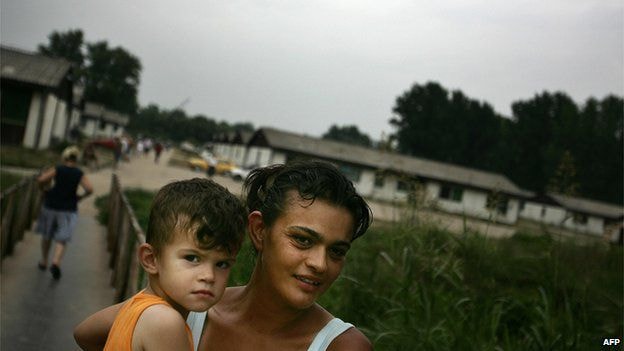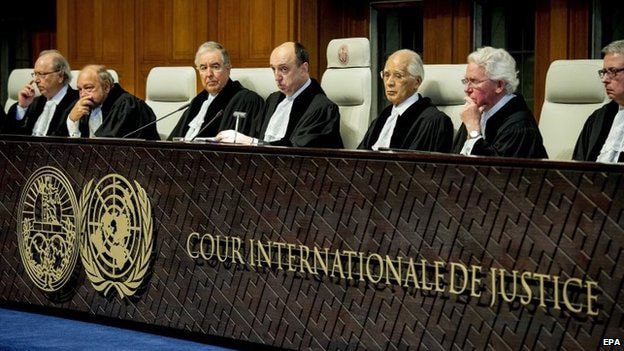UN court rejects genocide allegations from both Croatia and Serbia
(Baonghean.vn) - On February 3, the International Court of Justice rejected the genocide accusations from Serbia and Croatia during Croatia's war of secession from Yugoslavia.
The Croatian government accused Serbia of committing genocide in the town of Vukovar and elsewhere in 1991. Serbia later filed a counterclaim over the expulsion of more than 200,000 Serbs from Croatia.
About 20,000 people were killed in the wars between 1991 and 1995, mostly Croats.
 |
| About 20,000 people died in Croatia's war of independence (Photo: Reuters) |
The Croatian town of Vukovar was devastated during its three-month occupation by Serbs in 1991. Tens of thousands of Croats were forced to flee, and some 260 were arrested and killed. Four years later, the Croatian army’s “Operation Storm” bombarded much of the Serbian Krajina region, leaving some 200,000 people homeless.
Speaking in court on Tuesday, February 3, Judge Peter Tomka rejected the compensation claims of both Croatia and Serbia.
 |
| Tens of thousands of Serbs were left homeless after the Croatian army's "Operation Storm" (Photo: AFP) |
Both sides committed numerous atrocities during the war, Judge Tomka said. However, neither side could provide sufficient evidence to prove “the specific intent necessary for its acts of genocide.”
Croatia filed a complaint with the International Court of Justice - the United Nations' highest court - in 1999, accusing Serbia, then led by President Slobodan Milosevic, of targeting ethnic Croats during the conflict.
They want Serbia to pay compensation for damage "to people and property as well as to Croatia's economy and environment".
In 2010, Serbia responded to Croatia's complaint with an appeal, saying that ethnic Serbs were expelled when Croatia took actions to retake territory captured by Serbs in 1995.
The BBC's Anna Holligan in The Hague, the Netherlands, says genocide is the most serious and difficult to prove of all international crimes.
"Ethnic cleansing is not genocide," Judge Tomka said in his ruling against Serbia's claim.
"Ethnic cleansing can be part of a genocidal plan but only if the intention is to destroy the target group completely."
 |
| Judge Peter Tomka (center) rejected the compensation claims of both Croatia and Serbia (EPA photo) |
Serbian Foreign Minister Ivica Dacic earlier described the verdict as perhaps "one of the most important events for bilateral relations with Croatia".
"It will probably be the end of a process that has lasted 15-20 years and will put an end to the battle between both sides to prove who is the most dangerous criminal," he told reporters last Sunday.
Croatian Justice Minister Orsat Miljenic said earlier that the government's main goal was to "present what happened during the war and what was the aggression against Croatia".
Relations between the two countries have improved in recent years, but in 2012 Serbia was angered when the commander of “Operation Storm”, Ante Gotovina, was cleared of charges by the International Criminal Court.
Last week, before the sentencing, Vukovar resident Kata Lozancic told Reuters she believed genocide had taken place in her town. “Everything, from cultural and natural sites to people, was destroyed,” she said.
A refugee in Serbia expressed her displeasure at the Croatian government's statement. "They deported us Serbs, and now they say they are not criminals, but we are," she told Reuters news agency.
Pham Tien Hoan(According to BBC)






